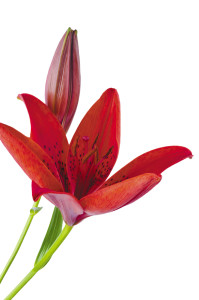Q. My zucchini is shriveling up. I’ve looked on the web and found similar looking issues for a problem called Blossom End Rot. The article suggested that the problem is caused by the lack of calcium. Do you think making up gallons of nonfat dry milk and “watering” the plants will solve my problem?
A. Blossom End Rot is a problem with many summer vegetables. With cucumbers, melons, pumpkins and squash, the fruit form and then quickly shrivel and rot. The vegetables never mature. With tomatoes, peppers, and sometime eggplants, tan to brown blotches form on the maturing fruit. These blotches are found on he lower section or the blossom end of the fruits. They do reach mature and are edible with the flaws. The lack of calcium is one of the causes of Blossom End Rot, however, watering with any type of milk product is not going to work. As part of your soil preparation next year, you would add calcium in the form of Dolimite, Agricultural or Oyster Shell Lime but not Hydrated Lime. The size of the vegetable garden will determine the quantity. Bonide Rot Stop or similar product is a liquid copper that can be applied during flowering. That being said, calcium products will not yield satisfactory results unless you correct the major reason for Blossom End Rot, irregular watering. Watering with a preset schedule April though September doesn’t work. Our temperatures are always in flux; hence, we need to vary the frequency on a weekly schedule. There is no problem with watering more often when it’s very warm. Our problem is watering less often when it’s cool. There is no set formula because every yard is different thus every garden is water differently. Irregular watering comes from the changes in temperature which effect the rate moisture is withdrawn from the soil. The soil preparation, exposure to the afternoon sun, the type of distribution system and the utilization of mulch all affect how often we water. Now, the one constant in all cases is the volume of water necessary to wet the entire root system. It’s just how often we apply the moisture that needs to change. Another problem that complicates things is the plant groupings. Deep-rooted vegetables such as tomatoes and eggplants should be separated from the shallow rooted varieties, such as peppers, squash as they will need to water more frequently. While the answer to the problem is easy, finding the right balance in your yard will take some trial and error.
Q. Do I need to stake my Oriental lilies?
 A. Oriental and trumpet lilies produce large perfumed flowers and may need some support once the grow past thirty-six inches. I’d place tall bamboo stakes or sturdy wire supports near the stems but be careful not to skewer the bulb and tie the stems to the supports with garden tape or twine. Place several ties along the stem, starting a foot below the lowest blooms, to prevent the weight of the blooms from snapping the stem.
A. Oriental and trumpet lilies produce large perfumed flowers and may need some support once the grow past thirty-six inches. I’d place tall bamboo stakes or sturdy wire supports near the stems but be careful not to skewer the bulb and tie the stems to the supports with garden tape or twine. Place several ties along the stem, starting a foot below the lowest blooms, to prevent the weight of the blooms from snapping the stem.
Buzz Bertolero is Executive Vice President of Navlet’s Garden Centers and a California Certified Nursery Professional. His web address is dirtgardener.com and you can send questions by email at dirtgarden@aol.com or to 360 Civic Drive Ste. ‘D’, Pleasant Hill, Calif. 94523 and on Facebook at Facebook.com/Buzz.Bertolero
Leave a Reply